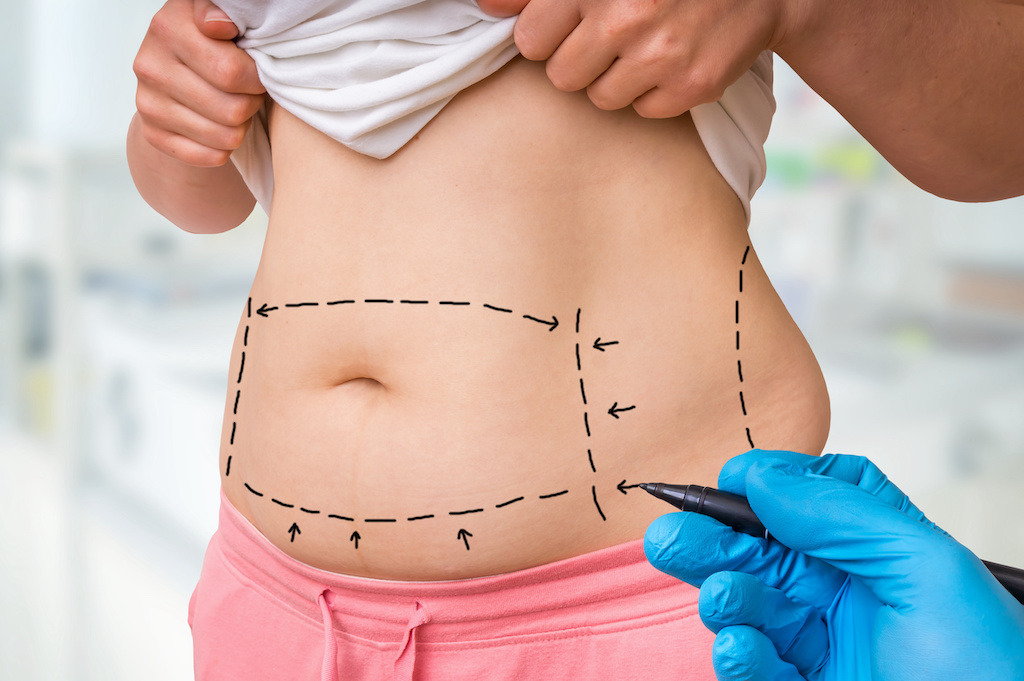
Author: Dr. Lawrence Iteld
This article is sponsored by Pacira BioSciences, Inc.
Plastic surgeons across the country are experiencing a surge in procedures as more people are taking advantage of the time at home to undergo cosmetic procedures. According to the American Academy of Facial Plastic and Reconstructive Surgery, 70% of surgeons reported an increase in bookings and treatments over the last year due in large part to patients having the flexibility to recover from treatments given the benefits of working remotely. Coupled with the fact that people want to look and feel confident when they return to the office, begin traveling, or visiting loved ones, more and more individuals are investing in themselves.
According to the Aesthetic Surgery National Databank, one of the most common plastic surgery procedures is an abdominoplasty, better known as a tummy tuck. This procedure removes excess fat and skin in the abdominal area and tightens muscles to promote a flatter and firmer stomach. Achieving a flat stomach can be challenging, even when you’re committed to a healthy lifestyle and routine exercise especially after pregnancy, so tummy tucks are a popular alternative to contour this particular part of your body.
Schedule a Consultation
If you are considering a tummy tuck, the first step is to schedule a consultation with a board-certified plastic surgeon to discuss whether you’re a candidate for this procedure. Ideal candidates are women who have had several pregnancies and want to tighten their abdominal muscles and reduce loose skin or people who underwent significant weight loss and want to remove the excess skin around their belly.
There are several important questions to address during the consultation, including what the surgery will entail and where the incision will be, as many prefer it to be below the bikini line so scars aren’t visible. You’ll also want to ask your surgeon about your recovery, including how your pain will be managed before, during, and after the procedure. It’s especially important for women to understand what options are available to manage pain since a national analysis found that 40% more women than men become chronic opioid users following surgery (meaning they are still taking opioids three to six months after their procedure).
Know Your Pain Management Options
It’s your right to understand everything about your surgery – especially what medications are being prescribed. Patients should feel empowered to ask their doctor to explain why the suggested treatment option is best and what the side effects may be. Opioids are not the only way to effectively manage pain after surgery, so it’s important to be educated about available options and proactively discuss them with your doctor prior to surgery.
For example, in my practice, I use a long-acting, non-opioid option called EXPAREL® (bupivacaine liposome injectable suspension) that can effectively manage pain the first several days after surgery and significantly reduce – or completely eliminate – the need for opioids. I encourage all patients to advocate for a non-opioid option and to proactively ask for alternatives. Many of my fellow surgeons are also seeing positive results with non-opioids. As an added benefit, my patients are reporting an improved recovery experience, including fewer side effects and increased mobility. By no longer having leftover medications in the home they are eliminating the risk of diversion and misuse.
 Photo Credit: Adobe StockThe Road to Recovery
Photo Credit: Adobe StockThe Road to Recovery
Everyone hopes for a swift recovery following surgery, and patients undergoing a tummy tuck are no exception. That is why it’s so important to have a plan in place before your procedure that will set you up for success after surgery.
Be sure to ask your doctor what you should have on hand when you get home from the hospital, as recovery from abdominoplasty may take several weeks. This can include everything from ice packs and loose clothing to a hand-held shower head and bathroom chair since you won’t be able to sit or bend easily. It will also be important to have a support system available to help manage your home while you’re recovering.
Deciding to get a tummy tuck is a major – but exciting – decision. Armed with the right information you’ll set yourself up for a smooth surgery and recovery experience. And remember, to ensure long-lasting results, patients should maintain a healthy lifestyle following surgery.
For more information, please visit www.EXPAREL.com/safety.
EXPAREL® (bupivacaine liposome injectable suspension) is indicated for single-dose infiltration in patients aged 6 years and older to produce postsurgical local analgesia and in adults as an interscalene brachial plexus nerve block to produce postsurgical regional analgesia. Safety and efficacy have not been established in other nerve blocks.
Important Safety Information
EXPAREL® (bupivacaine liposome injectable suspension) should not be used in obstetrical paracervical block anesthesia.
In studies in adults where EXPAREL was injected into a wound, the most common side effects were nausea, constipation, and vomiting.
In studies in adults where EXPAREL was injected near a nerve, the most common side effects were nausea, fever, and constipation.
In the study where EXPAREL was given to children, the most common side effects were nausea, vomiting, constipation, low blood pressure, low number of red blood cells, muscle twitching, blurred vision, itching, and rapid heartbeat.
EXPAREL can cause a temporary loss of feeling and/or loss of muscle movement. How much and how long the loss of feeling and/or muscle movement depends on where and how much of EXPAREL was injected and may last for up to 5 days.
EXPAREL is not recommended to be used in patients younger than 6 years old for injection into the wound, for patients younger than 18 years old for injection near a nerve, and/or in pregnant women.
Tell your health care provider if you or your child has liver disease, since this may affect how the active ingredient (bupivacaine) in EXPAREL is eliminated from the body.
EXPAREL should not be injected into the spine, joints, or veins.
The active ingredient in EXPAREL can affect the nervous system and the cardiovascular system; may cause an allergic reaction; may cause damage if injected into the joints, and can cause a rare blood disorder.
PP-EX-US-6697
For more information, visit Dr. Brian A. Levine's social media:

























